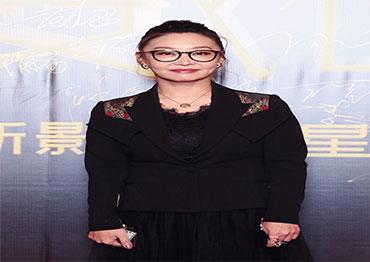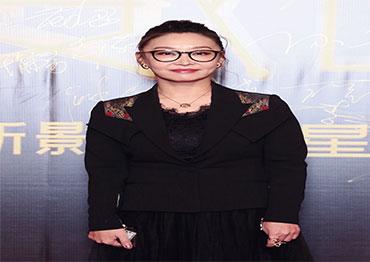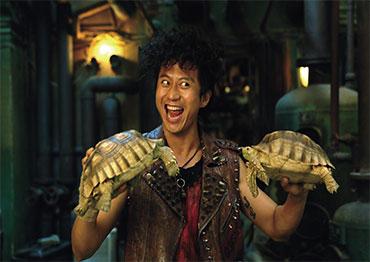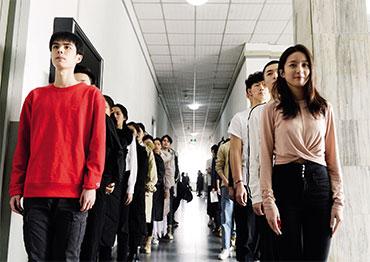Clad in a plaid shirt and ripped jeans, Li Yue walks into a theater dressing room with a script under his arm. He has been busy rehearsing and performing in several plays.
Compared to the high-profile, lucrative film and television sector, theater is far less profitable and away from the spotlight. It has been two years since Li graduated from Shanghai Theater Academy (STA), and as a stage actor, he has chosen a different path from his classmates who went into film and television.
Li started at STA in 2015. That year, Hunan Television produced a reality show called Grade One Freshman, featuring the campus life of some freshmen at STA. Li and his classmates landed spots on the show, where every bit of their lives would be on camera.
When the show was broadcast, these youths understood there was enormous interest in them both from the public and the market. As each episode focused on one student, they instantly gained a large social media following and were chased by agencies seeking to mold them into influencers who could drive traffic.
Since the early 2010s, online video-sharing giants such as Youku, Tencent and iQiyi used the influx of hot money to start their own content creation. They churned out films and television series. The “popular IP + traffic stars” model is widely seen as the metric of market success.
IP, or intellectual property in China’s entertainment industry, refers to a story or a concept that has the potential to be adapted into a film or a TV show. Most IP works are adapted from online fiction and games, many with an already bankable large fanbase. Traffic stars, mostly good-looking youngsters with huge online fanbases, wield significant influence in social network marketing by easily mobilizing vast fandoms to create a high volume of social buzz and digital traffic.
“The production process for TV shows has completely changed,” screenwriter Wang Hailin told NewsChina. “The primary thing for producers is no longer finding good stories themselves but asking video platforms what they want first. Platforms check the most popular genres according to its streaming data, such as cheesy romance, fantasy and BL (boy’s love). The platforms not only determine the genre and tastes but also the actors. They have a list of traffic stars and promise the producers to buy the series if it involves certain traffic stars.”
The “popular IP + traffic stars” combo is common practice. The standard of casting has changed, no longer depending on the actor’s skills and suitability for a character, but on their fanbase and the digital traffic they create.
The irony lies in that traffic stars, who are often not the best actors, command huge fees which account for most of the production cost, and as a result, not much is left to make a quality production. Sometimes too much popularity is a bad thing. Actress Zheng Shuang, who became embroiled in a surrogacy scandal with her ex, received 160 million yuan (US$24.7m) for 77 days’ work on TV series A Chinese Ghost Story in 2019, Shanghai Tax Service revealed in August, before slapping her with a huge fine of US$46 million for tax evasion. Her acting credits have been erased and her online presence deleted.
Still, the rush to find the next best thing has infected the industry. “The younger, the better” has become a mantra that drives talent scouts to seek “younger and fresher meat.” Middle schools and colleges have become major talent pools for potential idols.
Li told our reporter that scouts try everything to watch student performances at drama schools and even sneak into the acting exams. “They only want young good-looking ones. During those years [2015-2018], they only paid attention to the youngsters born after 1995, even 1998. Nowadays, by their standards, those born in 2000 are ‘old’ now,” Li told NewsChina.
Li was already 22 when he arrived at STA, older than most of his classmates. Before that, he studied acting for three years at an art college in Shandong Province. Having had rockier experiences than his peers, Li cherished his chance to learn at the famous drama school, and maintained a calmer attitude toward the increasingly frivolous environment, though he admits he was affected despite himself. “Being in such an environment, it’s easy to get that itch,” Li said.
In 2018, the year Li graduated, he witnessed the welcome ceremony STA held for the new students. Li was surprised by how they postured for this campus event: wearing haute couture, they posed like Zoolander for personal photography teams that trailed them. “I felt they were more like commodities rather than real people,” Li said.

 Old Version
Old Version



